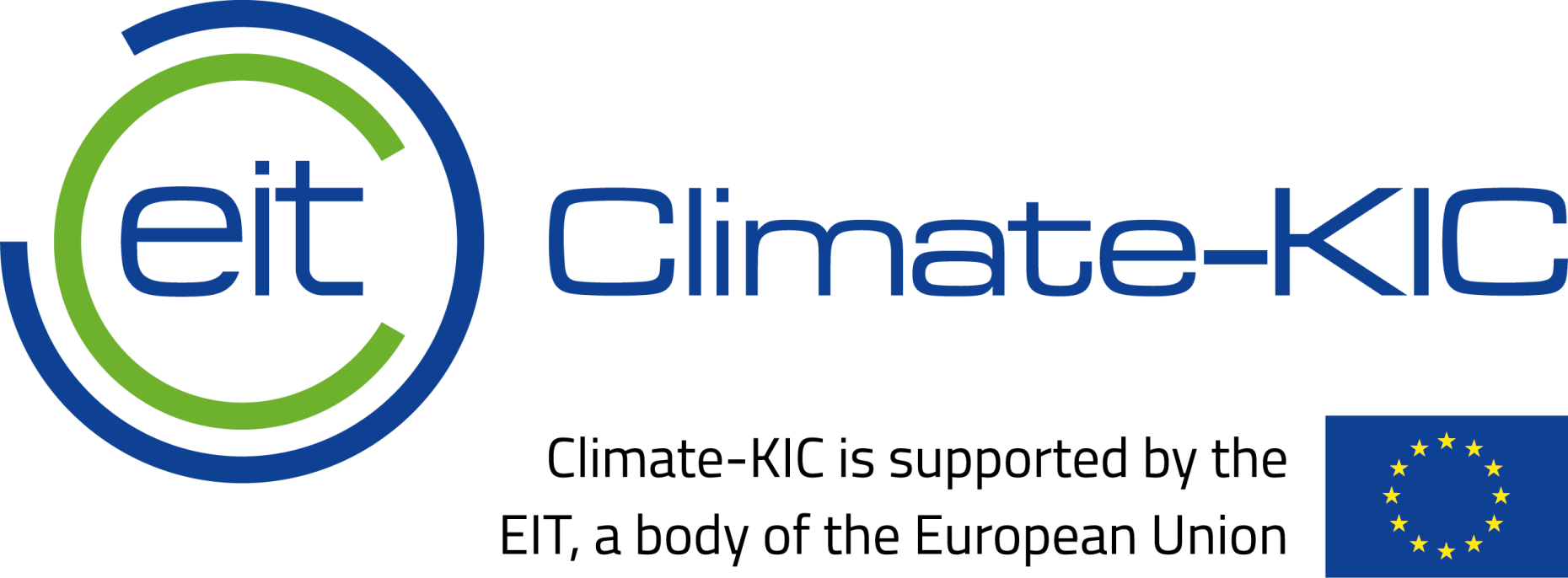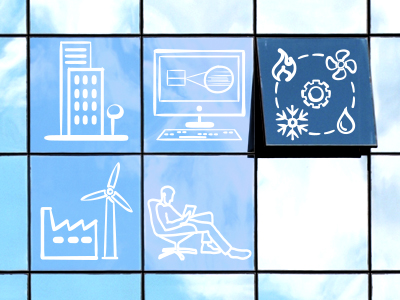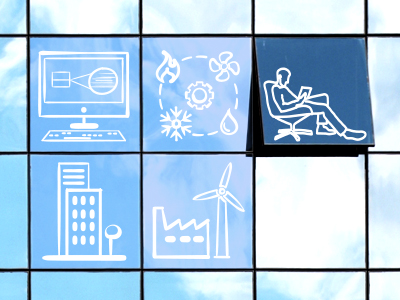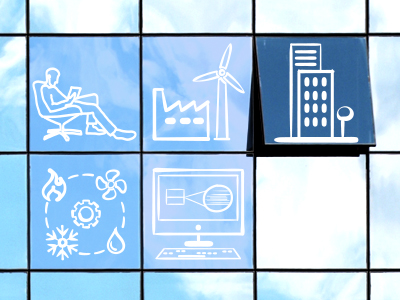Overview
Discover how to convert natural resources into heat, cold and electricity, what the capabilities of renewable systems are, how to match energy supply with buildings' energy demand, and what that means for energy efficiency and carbon emissions.
In this course, you will discover the supply side of buildings' energy chain.
The first step is to consider how to convert natural resources into the energy needed by buildings: what are the options to create heat, cold and electricity? You will learn about efficiency and use this concept to estimate building's primary energy use and carbon emissions. This concept is widely used in many national and international policies and building regulations, and is essential to counteract climate change.
You will study the performances of single heating systems like electrical heating, gas, or renewables like biomass, solar boilers and geothermal heat, followed by single cooling systems like evaporative cooling and environmental cold.
We will also examine the systems that concurrently produce heat and cold. Do you know for instance that a heat pump and a cooling machine are identical devices? You will learn about the basic working principles of heat pumps and how to make sure they achieve high performance levels. After this course you will know how an Aquifer Thermal Storage makes smart use of the ground to deliver cold in summer and heat in winter.
Diverse electricity generation methods using turbines (wind, hydro), photovoltaics or hydrogen fuel cells will also be examined. You will learn how cogeneration of heat and power works and why this is important for the rational use of energy resources. You will also know why heat pumps are often combined with boilers or to which extent it is worth to invest in batteries for your solar panels.
By the end of the course you will be able to decide on how to combine energy conversion systems at building level in order to match buildings' energy demand while keeping costs acceptable, using a minimum of natural resources and producing a minimum of carbon emissions.
This course is part of the PCP Buildings as Sustainable Energy Systems. In the other courses in this program you can learn how to design buildings with low energy demand, how to create a comfortable indoor environment, and how to control and optimize HVAC systems.
What You'll Learn:
- What the different heating, cooling and electricity generation systems are and what their working principles are.
- How to combine the concept of efficiency with the building's energy demand to estimate primary energy usage and carbon emissions.
- How cogeneration of heat/cold and heat/power works and how to cope with mismatches between supply and demand.
- What rational use of energy entails in practice.
- How to use load curves from energy demand profiles to decide on the right combinations of energy conversion systems.
Quotes From Our Learners
I am older architect learning how to respond to our world's energy demands as they affect the built environment. Each of the courses in the professional certificate teaches how to qualitatively and quantitatively seek out better solutions. If I had previously known the depth of this knowledge, our clients would have better, responsible buildings. I have taken several online MOOC concerning sustainable energy. DelftX offers many outstanding MOOCs covering this broad subject. I recommend they all for being insightful and skill-oriented. - Bradford J Black
This was one of the best experiences I had in online learning, the course content is clear with a professional hierarchy in delivering the knowledge and in teaching, the assignments were helpful to apply what we have learned and the tutors are interacting and helpful. Through this professional certificate, I have gained a lot of knowledge about Energy supply and demand in Buildings, I understood the calculations behind the energy and HVAC systems and how to uses them efficiently. - Yara Al Manaseer
The development of this course is supported by Climate-KIC

Details
License
Unless otherwise specified, the Course Materials of this course are Copyright Delft University of Technology and are licensed under a Creative Commons Attribution-NonCommercial-ShareAlike 4.0 International License.
Qualifications
Chartered Engineering Competences
All our online courses and programs have been matched to the competences determined by KIVI’s Competence Structure, a common frame of reference for everyone, across all disciplines, levels and roles.
These competences apply to this course:
- A1: Extend your theoretical knowledge of new and advancing technologies.
- E3: Undertake engineering activities in a way that contributes to sustainable development and a circular economy.
Admission
This is a Massive Open Online Course (MOOC) that runs on edX.
Prerequisites
None.


